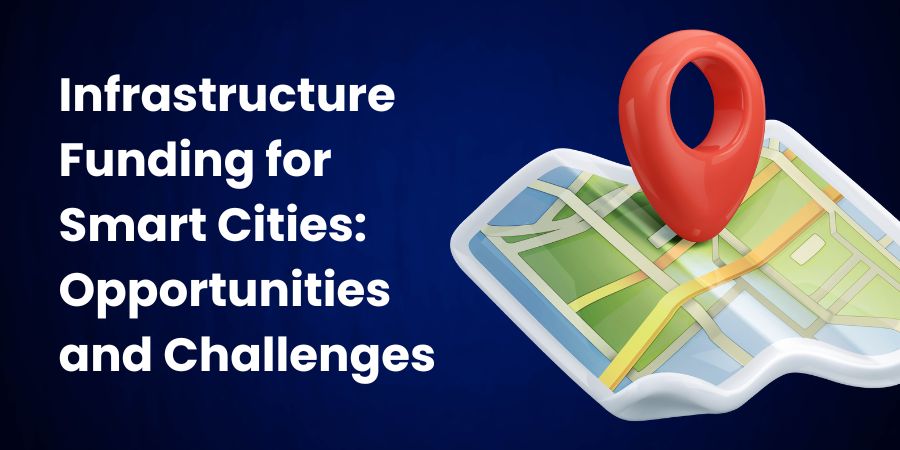
Infrastructure Funding for Smart Cities: Opportunities and Challenges
The concept of smart cities is gaining traction globally as urban areas turn to technology to enhance the efficiency of services and meet the growing demands of their populations. In South Africa, the move towards smart cities represents a pivotal shift towards sustainable urban development and digital transformation. However, financing these ambitious projects presents both significant opportunities and formidable challenges. This article explores the intricacies of funding smart city initiatives in South Africa, highlighting innovative funding strategies and the obstacles that need to be navigated.
Opportunities in Funding Smart Cities
Leveraging Public-Private Partnerships (PPPs)
One of the most promising avenues for financing smart city projects in South Africa is through PPPs. These partnerships allow for the pooling of resources from both the public sector and private entities, sharing the financial burden and leveraging the expertise of private companies in technology and infrastructure development. The South African government has shown support for PPPs as a means to drive the smart cities agenda, offering a framework that can attract investment while ensuring public interests are safeguarded.
Utilizing International Grants and Loans
Smart cities, with their focus on sustainable and inclusive urban development, align well with the goals of many international development agencies. As a result, South African smart city projects have the opportunity to access grants and concessional loans from organizations such as the World Bank, African Development Bank, and various United Nations agencies. These funds can be pivotal in kick-starting projects, especially those that demonstrate high potential for social impact.
Innovation in Financial Instruments
South Africa is also seeing innovation in financial instruments tailored to infrastructure and smart city projects. Green bonds, for instance, are increasingly popular for funding environmentally sustainable initiatives, including energy-efficient buildings and green transportation systems within smart cities. Similarly, infrastructure funds and special-purpose vehicles (SPVs) offer structured financing solutions that can mitigate risks for investors and attract private capital.
Challenges in Financing Smart Cities
High Initial Costs and Long Payback Periods
One of the primary challenges in funding smart city projects is the high initial capital required, coupled with the long payback periods. These factors can deter private investors who are cautious of the return on investment (ROI). Addressing this challenge requires innovative funding models that can offer more immediate returns or government guarantees to reduce investor risk.
Regulatory and Policy Uncertainties
The regulatory and policy landscape in South Africa can present hurdles to the financing of smart cities. Ambiguities in legislation regarding PPPs, digital data management, and urban development can stall projects. Ensuring a clear, stable regulatory framework is crucial for attracting investment in smart city initiatives.
Technological Risks
The rapid pace of technological advancement poses a risk to investors in smart city projects, as today’s cutting-edge solutions may become obsolete tomorrow. This uncertainty can impact the financing of technology-driven infrastructure, necessitating flexible and adaptive project designs that can evolve with technological changes.
Infrastructure Funding for Developments in Smart Cities
In the realm of smart city projects, funding infrastructure developments is pivotal for the seamless integration of technology with urban living. South Africa’s approach to funding these developments is multifaceted, drawing on both traditional and innovative financing mechanisms to cater to the diverse needs of smart city infrastructure, from transportation systems to digital networks and green spaces. A key strategy involves targeting specific development projects that are foundational to the smart city vision, such as broadband infrastructure, renewable energy projects, and intelligent transportation systems.
Government initiatives play a crucial role, offering seed funding or subsidies to kick-start these projects. This approach not only lowers the entry barrier for private investment but also signals government commitment to infrastructure development, enhancing investor confidence. Additionally, special economic zones (SEZs) and urban development zones (UDZs) offer tax incentives for investments in infrastructure, further stimulating private sector participation.
The development of smart cities also opens the door for crowd-funded infrastructure projects, where citizens and businesses can directly invest in their city’s development. This model not only democratizes the funding process but also fosters a sense of community ownership over the smart city transformation. Furthermore, the use of technology in these projects, such as blockchain for transparent and secure transactions, exemplifies the innovative spirit of smart city initiatives.
However, for these funding avenues to be fully effective, there needs to be a cohesive strategy that aligns with the national development plans and smart city objectives. Collaboration among all stakeholders—government, private sector, financial institutions, and the community—is essential to address the complexities of funding and implementing smart city infrastructure projects. By leveraging a combination of direct investment, incentives, and innovative financing models, South Africa can pave the way for sustainable and inclusive urban development, making the smart city vision a reality.
Conclusion
The journey towards realizing smart cities in South Africa is fraught with both exciting opportunities and significant challenges. Financing these futuristic urban spaces requires a concerted effort from government bodies, private investors, and international agencies. By embracing innovative funding models, such as PPPs, green bonds, and leveraging international grants, South Africa can overcome the hurdles of high costs, regulatory uncertainties, and technological risks. As the country continues to navigate these complexities, the vision of sustainable, efficient, and inclusive urban environments becomes increasingly achievable, promising a brighter future for all South Africans.
Frequently Asked Questions
Q: What is infrastructure funding in the context of smart cities, and why is it crucial for property developers?
Infrastructure funding for smart cities involves the financial mechanisms and resources allocated for developing and integrating essential services such as electricity, water supply, sewage, and smart technology systems into urban areas. For property developers, securing this funding is crucial because it ensures that their projects are viable, connected, and capable of meeting the modern demands of urban living, thereby increasing the value and attractiveness of their developments.
Q: How do property developers typically secure infrastructure funding for projects in smart cities?
Property developers can secure infrastructure funding through a variety of sources, including government grants, public-private partnerships (PPPs), bank loans, and investment from private equity. In smart cities, where the integration of technology and sustainability is key, developers might also explore funding from specialized green financing programs or technology investment funds that are interested in promoting innovative urban solutions.
Q: What are the challenges property developers face when seeking infrastructure funding for smart city projects?
One major challenge is the high upfront cost associated with integrating smart technologies and sustainable infrastructure, which can deter some investors. Additionally, the regulatory environment and approval processes can be complex and time-consuming, delaying project starts. Developers must also demonstrate the long-term viability and return on investment (ROI) of their smart city projects to secure funding, which can be difficult without proven models or precedents.
Q: How does the integration of smart technologies into infrastructure projects benefit property developers and investors?
Integrating smart technologies into infrastructure projects can significantly enhance the efficiency, sustainability, and appeal of property developments. These technologies can lead to reduced operational costs, attract tech-savvy tenants and buyers, and increase the long-term value of the property. Moreover, smart infrastructure can help developers meet regulatory standards for sustainability and innovation, making their projects more competitive and compliant.
Q: Can infrastructure funding for smart city projects lead to public-private partnerships (PPPs), and how do these work?
Yes, infrastructure funding for smart city projects is often a catalyst for public-private partnerships (PPPs). In a PPP, a government entity partners with a private-sector company to fund, build, and operate a project. This model allows for the sharing of resources, risks, and rewards. The government may provide land, subsidies, or regulatory support, while the private sector brings in capital, technology, and expertise. PPPs can accelerate the development of smart city infrastructure by leveraging the strengths of both the public and private sectors.

